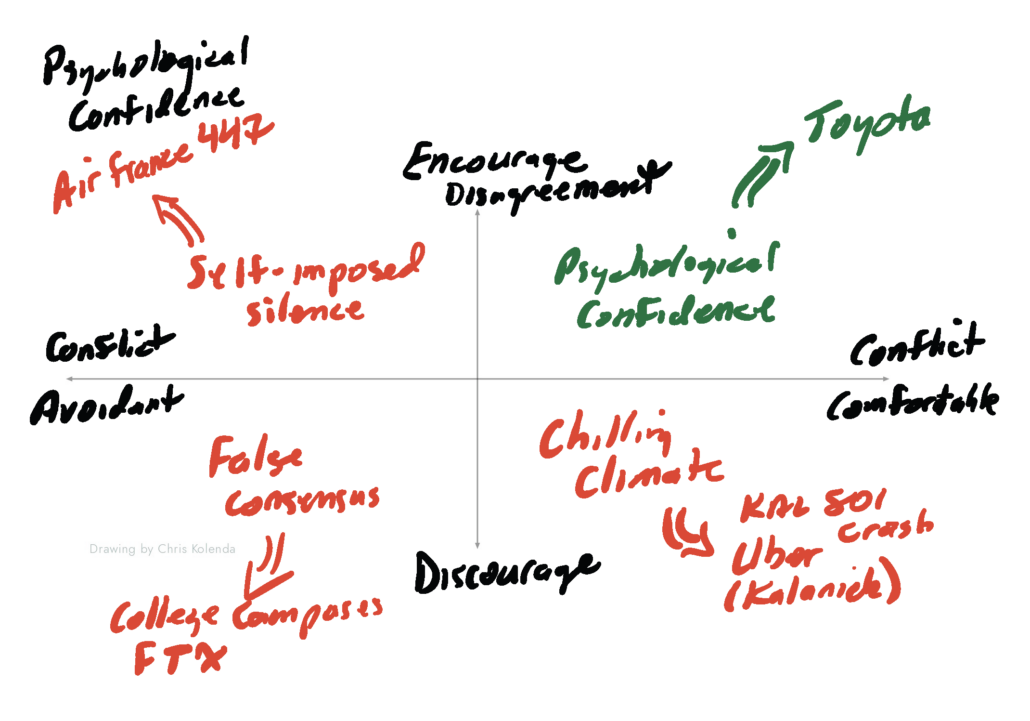Building Psychological Confidence in a Hyper-Safe Workforce
Psychological confidence is the willingness to speak up respectfully, with the confidence of being taken seriously.
Why it matters
Organizations with high levels of psychological confidence have 27% lower turnover, 74% higher engagement, and 50% more productivity. All of this even as employees report significantly higher life satisfaction (29%), lower stress (74%), and more willingness to try new things (67%).
I prefer psychological confidence over psychological safety because safety-ism has become an excuse never to hear anything you disagree with. You have people (many on college campuses) to whom any constructive criticism (or an A-) makes them feel “unsafe.” This condition is psychological fragility and requires therapy.
In psychologically confident companies, employees will report problems before they become crises, share fresh ideas that will improve your business, and challenge facile thinking.
The chart below compares states of psychological confidence. The north-south axis depicts whether leaders encourage or discourage respectful disagreement, while the east-west axis contrasts conflict-avoidant employees versus conflict-comfortable ones.

Leaders may encourage disagreement, but employees who are conflict-avoidant will remain silent. The Air France 447 co-pilot knew what to do but was unwilling to assert himself; the crash in 2009 killed 228 people.
False consensus occurs when leaders discourage disagreement and conflict-avoidant employees self-censor. Many college campuses have this problem. The crypto-company FTX did too. Employees knew of problems, the founder did not want to hear them, and investors lost billions.
Conflict-comfortable employees may face a chilling climate when leaders discourage disagreement. Uber’s co-founder Travis Kalanick created a toxic work environment that prompted top talent to leave and report his misbehavior. Uber’s valuation dropped in half, a loss of $35b. Korean Airlines 801 faced a similar situation: the captain ignored the co-pilot’s warning to follow proper procedures. The crash killed 228 of 254 on board.
The best companies have psychological confidence; leaders encourage respectful disagreement, and employees share their views. Toyota is a super example: any employee who sees a problem can pull the stop lever to halt production. Its Kaizen continuous innovation model encourages people to share ideas and try new things. The trick here is to avoid complacency and backsliding.
Where does your company stand?
I can help you boost your company’s psychological confidence if you are not where you want to be, or if you want to avoid complacency and backsliding.
When you get good at getting better, you can achieve big goals in the simplest way possible.






